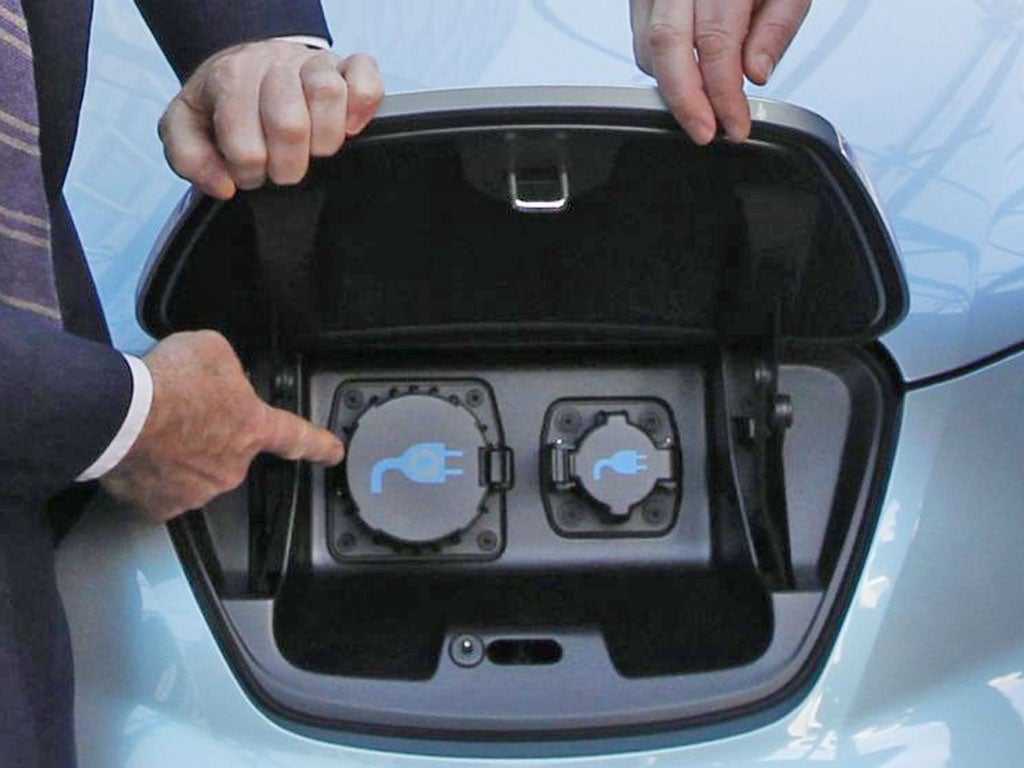Are electric cars about to make a surge at last?
Extra charging points and new technology make it easier for motorists to go green

Last year, riding high on a promise to be the greenest government ever, the Department for Transport hailed 2011 as the "year of the electric car". Subsidies were offered and councils were told to plan for an electric future. The long-promised revolution in the way we drive was finally here, it seemed.
Click here to see 'VOLTS WAGONS - ELECTRIC CARS IN BRITAIN' graphic
British drivers had other ideas. The notion that electric vehicles are slow, impractical and even unsafe persisted, and only 1,000 were sold.
But now there is a spark of hope. Today, more than 60 charging points will go live in Oxford, making the city the "electric vehicle capital of Europe" with one charging point for every 2,400 people – the best ratio in Europe.
The company behind the new network, Chargemaster, hopes that Oxford will set the pace for other cities preparing for a new generation of electric and hybrid cars coming on the market in the next two years. British cities dominate the top 10 list of electric-friendly locations. London has 654 charging points, the most in Europe.
"Not only do electric vehicles have obvious environmental benefits, they also make the most financial sense," said David Martell, chief executive of Chargemaster. "They have never been more convenient to charge and maintain." The new stations will be able to charge a car's battery in half the eight hours older charging points can take. A further 50 charging points planned for Oxford and the surrounding area in the coming year could cut charging times to just 20 minutes.
In the next 18 months, 29 new models of electric or hybrid car will come on the market. BMW is launching its first "all-electric" cars, the i3 and the i8. Ford will launch the Focus Electric, while Vauxhall has just released what it claims is "the first electric vehicle suitable for everyday use", the Ampera, which has a range of 360 miles thanks to a small petrol-fuelled generator that supplies electricity to the wheels after the battery has run out. Most entirely electric cars have a range of 100 miles.
Combined with the growing network of charging points, it means the Department for Transport hopes that, if not 2011 or even 2012, then maybe 2013 might be the electric car's year. "One of the biggest barriers to the take-up of electric cars has been drivers' concerns about finding somewhere to charge them," said the Transport minister, Norman Baker. "Motorists are used to having a filling station within easy reach and want reassurance that vehicles using alternative technologies will also be easy to refuel or recharge. This barrier has been well and truly smashed in Oxford."
Although electric cars don't come cheap (the Ampera costs £29,995), the Government pays £5,000 toward any purchase and, with the price of petrol ever-increasing, the running costs are much lower.
Professor Allan Hutchinson, head of the Sustainable Vehicle Engineering Centre at Oxford Brookes University, believes the new generation of vehicles will be taken more seriously by drivers.
In the future, recharging could be even easier thanks to wireless technology that is being developed. Charging "pads" could be installed in front of traffic lights or in car parks, he says, allowing cars to charge up on the move. New roads could have charging pads built in. Professor Hutchinson predicts that by 2020, 5 per cent of vehicles could be electric. "It's about energy security," he said. "There simply won't be enough liquid fuel left in the world."
Back in Oxford, there are already more charging points than petrol stations. Soon that may be true of every town in the country.
Join our commenting forum
Join thought-provoking conversations, follow other Independent readers and see their replies
Comments
Bookmark popover
Removed from bookmarks